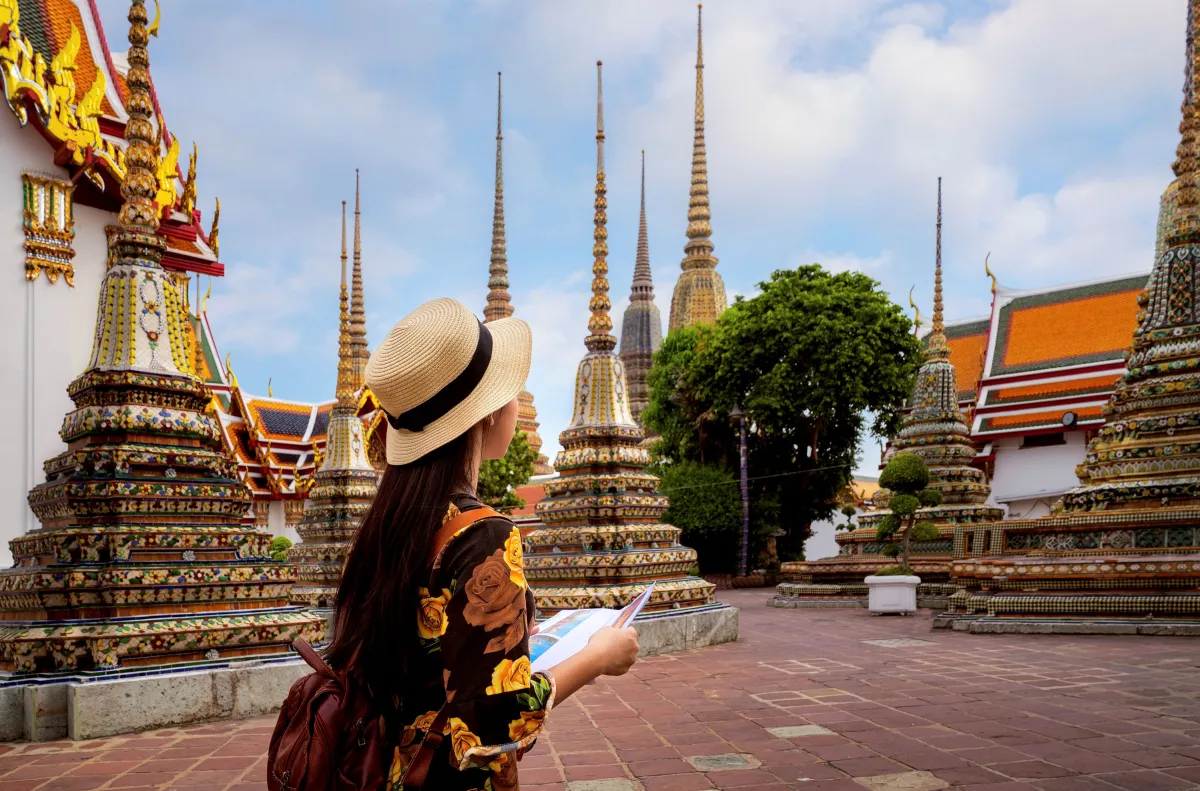
Important Information for Foreigners before Travelling to Thailand
Visa Inspection
Passport Inspection upon Arrival in Thailand
1. Foreigners who wish to travel to Thailand must apply for a passport inspection or visa from the Thai embassy or consulate in their home country or from the Thai embassy designated to take care of the country in which they reside;
2. Some foreign nationals may travel to Thailand without a visa if they meet certain conditions, and these individuals fall into two groups:
(1) Tourists from countries that have been exempted from passport inspection for tourism purposes, and who are able to stay in Thailand for no more than 30 days;
(2) Countries that have an agreement with Thailand exempting passport inspection.
3. Some foreign nationals are allowed to apply for a visa on arrival (VOA) and undergo immigration inspection at designated Thai checkpoints upon their arrival in Thailand, provided that they will stay in the Kingdom for no longer than 15 days;
4. Foreigners travelling from areas that have been affected by yellow fever must present an International Health Certificate on Yellow Fever Vaccination when applying for immigration inspection at the embassy/ consulate or at the immigration checkpoint. In order to be granted entry, they must show the document to immigration officers upon their arrival in Thailand;
5. The general qualifications for those who wish to apply for a visa to enter Thailand are as follows:
6. When applying for a visa, foreigners must undergo a visa inspection to ensure that it is consistent with the purpose of their entry into Thailand. It should be noted that visa approval is at the discretion of the Royal Thai Embassy or Consulate-General. Moreover, for some nationalities, there are special regulations and criteria for visa inspections;
7. To prevent any issues during travel, foreigners who wish to apply for a visa to enter Thailand should understand the “visa validity” and the “period of stay”:
“Visa validity” refers to the length of time that the visa holder is allowed to use the visa to enter Thailand. The immigration officer will determine the visa validity. Furthermore, it will appear on the visa sticker or stamp of the embassy or consulate general. Generally, the visa validity is for a three-month period from the date of issuance; that is, the traveler must arrive in Thailand before that period is up. However, in some cases and for certain types of visas, the visa validity may be for six months, one year, or for three years;
"Period of stay" refers to the amount of time that a traveler is permitted to stay in Thailand. When foreign nationals enter the country, the immigration officers are responsible for determining the period of stay, and it will be displayed on the entry stamp. The length of the period of stay depends upon the type of visa issued. For instance, a transit visa allows for a stay of up to 30 days, while a tourist visa allows for a stay of up to 30 or 60 days, and a non-immigrant visa allows for a stay of up to 90 days.
If it is necessary to stay beyond the permitted duration of stay, foreigners must submit a request for permission to stay longer at the Immigration Office (available both in Bangkok and in provincial areas). Otherwise, if an individual remains beyond the permitted duration of stay, a fine of 500 baht per day will be imposed;
8. Foreigners traveling to Thailand with any type of visa are not permitted to work until after they have obtained a work permit. Therefore, those foreigners who wish to work in Thailand must apply for the correct visa, which is the Non-Immigrant Visa "B," in order to be eligible to apply for a work permit;
9. Thai embassies and consulates have the authority to issue visas to foreigners, which will allow them to travel to Thailand. However, it is the responsibility of the immigration officers to determine the entry and length of stay in Thailand.
Therefore, some foreign nationals who have already been issued a visa may not be allowed to enter the country if the immigration officers determine that these individuals have any characteristics or behaviors that would make them ineligible for entry in accordance with the Immigration Act, B.E. 2522. In Thailand, the power to grant entry and to determine the duration of any stay lies with the immigration officers at the point of entry.
Source: Immigration Bureau
Address: Chalermprakiet Building, 904 Moo 6, Ban Mai Subdistrict, Pak Kret District, Nonthaburi, Thailand.
Tel: +66 2572 8500.
For more information
